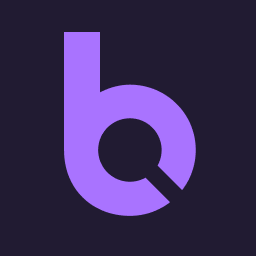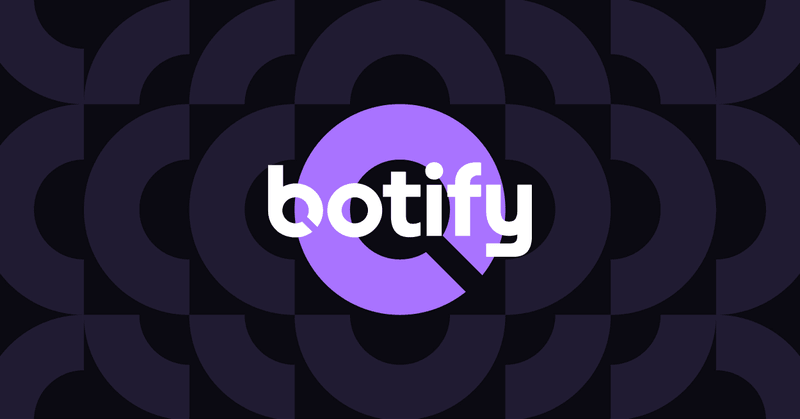

The following is a transcript of a recent fireside chat between Elise Ducret, Chief Marketing & Digital Officer, L'Oreal, and Benoit Gourdon, President, Europe of Botify.
Benoit Gourdon: I'm delighted to be joined today by Elise Ducret, CMO of L'Oréal France, to discuss what organic search means to you, Elise, and in particular, how it fits within your wider e-commerce strategy.
Elise, Can you describe to us which functions you cover in your role as CMO?
Elise Ducret: Thank you Benoit, I'm delighted to be here!
So my role as CMO, or Chief Marketing Officer, means that I am responsible for the digital transformation of the L'Oréal group in France specifically. As such, I support all of our brands in developing their digital strategies, accelerating their e-commerce growth, as well as all their media related activities.
BG: Elise, maybe we can begin by describing a little more the project that brought us together today. But first, I would like you to tell us a little more about the impact of the famous quote from Jean-Paul Agon, the CEO of L'Oréal who describes e-commerce as the: "The New Name of the Game at L'Oréal".
ED: The future of L'Oréal was indeed already underway, but I would say that last year was really a pivotal moment in accelerating the group's digital transformation strategy. So, although, as one of the key pillars presented by Jean Paul Agon, the transformation plan had already begun ten years ago, the COVID crisis (particularly as we have experienced it within France and Europe) has been a real catalyst for us because everything has been played out on digital channels.
This has included everything from online conversations with consumers, content streaming, all the master classes that we've developed and above all, e-commerce, which has become one of the only channels available for making all of one's purchases, online. And so, I would say that in France, we have mobilised our teams to respond to this moment and this consumer interest and have specifically pivoted all of our teams and energy to meet the needs of our customers. Hence, although the group's digital transformation plan already had significant momentum, it was greatly accelerated by the effects of the pandemic.
BG: If I remember correctly, the original goal was to achieve 20% of turnover from e-commerce within 5 years, but as a result of the crisis you will have achieved or exceeded this goal much faster. E-Commerce has therefore become a priority in terms of investment, because in order to further grow this part of the business you need to prioritize the allocation of budget and resources.
ED: Yes, you're absolutely right, our corporate goal was to reach 20% of e-commerce business during 2020, a goal which had already been exceeded in Asia at the very start of 2020 given Asia is without doubt more advanced in terms of digital transformation and the use of e-commerce. We're expecting our corporate results to be published within the next few days (during February) but in my view, this objective has almost been achieved globally, so we will now be expecting to build our ambition further. [On February 12, 2021 L'Oreal reported that "sales achieved in e-commerce [5] rose sharply by +62% [1], across all Divisions and all regions, reaching the record level of 26.6% of the total Group's sales for the year."]
And of course, customer behaviour is at the heart of this e-commerce growth, because circumstances have meant that digital is the primary channel for engagement, whilst not necessarily conflicting with traditional retail channels. This ideal combination of online and offline is something we're striving for, and an area in which Asia is already more developed.
BG: So to circle back to the theme of our conversation today, why have you invested in organic search as a performance marketing channel and in particular, how does that compare to your paid search strategy?
ED: SEO has always been an important part of the group's marketing strategy, and of course pre-dated our adoption of paid ads. But, coming back to the crisis we have experienced, we were forced to cut some of our media spend, and it has become clear that SEO has regained its first place as a performance channel for us and become more important than ever.
The other key benefit with organic search is the credibility it provides to our consumers. They are assured of the quality of the content and hence there is a higher degree of brand integrity. Paid is more straightforward and direct in the sense that we buy keywords, and we appear in searches as a result. With SEO, in comparison, we develop a content strategy, become subject matter leaders and ensure we are capturing the interest of our consumers in a more authentic way.
We have very much seen parallels with Marie Kondo's famous principles during this crisis! In the same way that Marie Kondo is an expert in tidying up closets at home to optimise space, if we organise all the elements well, in such a way that they are visible, they will be used by consumers. And so we implemented this Marie Kondo strategy last year to properly reference and index all of our content to ensure that it is seen and used and relevant to the consumer. This is what we worked on with Botify.
BG: What convinced you that Botify was the right partner for L'Oreal?
ED: To put it simply, you offered us the principles of Marie Kondo.
We have regained importance and visibility with our content. We've been able to demonstrate the value of organic in terms of visibility and traffic, but going beyond this, we've also been able to show how important content is in driving conversions, so we are very much evaluating our strategy up to the point of purchase. And so, the meeting we had [with the Botify team] really impressed us because you addressed one of our major challenges of ensuring visibility of our extensive content.
For L'Oréal France alone, we have fifty-six brands and fourteen e-commerce sites, all selling directly to consumers. As you know we also launch a huge number of products and therefore create huge amounts of content. At some point, some of that content can lose visibility because it is replaced by a new piece of content for instance, but it still has value all the same. In addition of course, there is also the challenge of content being impacted by changes in Google's algorithm and we need the flexibility to be able to quickly update this content and improve ranking. What we liked about your solution, quite simply, was the message that L'Oréal cannot continuously sort through the content and clean up the site, so Botify is there to make our great content visible and accessible to everyone."
I'm personally convinced that when you have shared content for ten years on how you use a skin care product or a routine for example; that content is just as relevant today, as it was 10 years ago. So for me, [Botify's ability to enable L'Oreal] to capitalise on the content that [we] have organically, whilst [Botify] are going to make it visible so [we] can always meet [our] business and visibility objectives," that's what appealed to me. And the results we've achieved together are extremely positive, so I am absolutely delighted.
BG: The second element we had presented as part of the project, which we felt was just as important for an organisation like L'Oréal, was the ability to provide you with automation and recommendations to increase your efficiency. Would you say this was a key influencing factor in your decision process?
ED: Yes that's very true. Our primary goal, as mentioned earlier, was to drive greater content visibility through partnering with Botify. However the automation and recommendations you are able to provide is also key for a group like ours. We have a large number of brands and a fairly complex organisation since we have divisions, departments, brands, international brands, regions, and therefore a large number of stakeholders.
It was very attractive therefore to know: "here is this tool that helps you to assess which recommendations to action, in a completely autonomous way, without needing to ask each brand, each IT department, each marketing department, and then to implement and immediately get results; this is the second area that convinced us of the platform and the reason we decided to implement it across all of our brands.
This agility and responsiveness powered by artificial intelligence which you are offering is THE key topic of the moment and is something we are all striving for. Taking advantage of AI means that not only are we implementing changes in a more agile and proactive way, but also that our teams are able to focus on other key projects and initiatives.
BG: Thank you so much for your time today, Elise, it's been a pleasure speaking with you.
ED: Thank you for having me.

.svg)



.svg)


.svg)
.svg)

